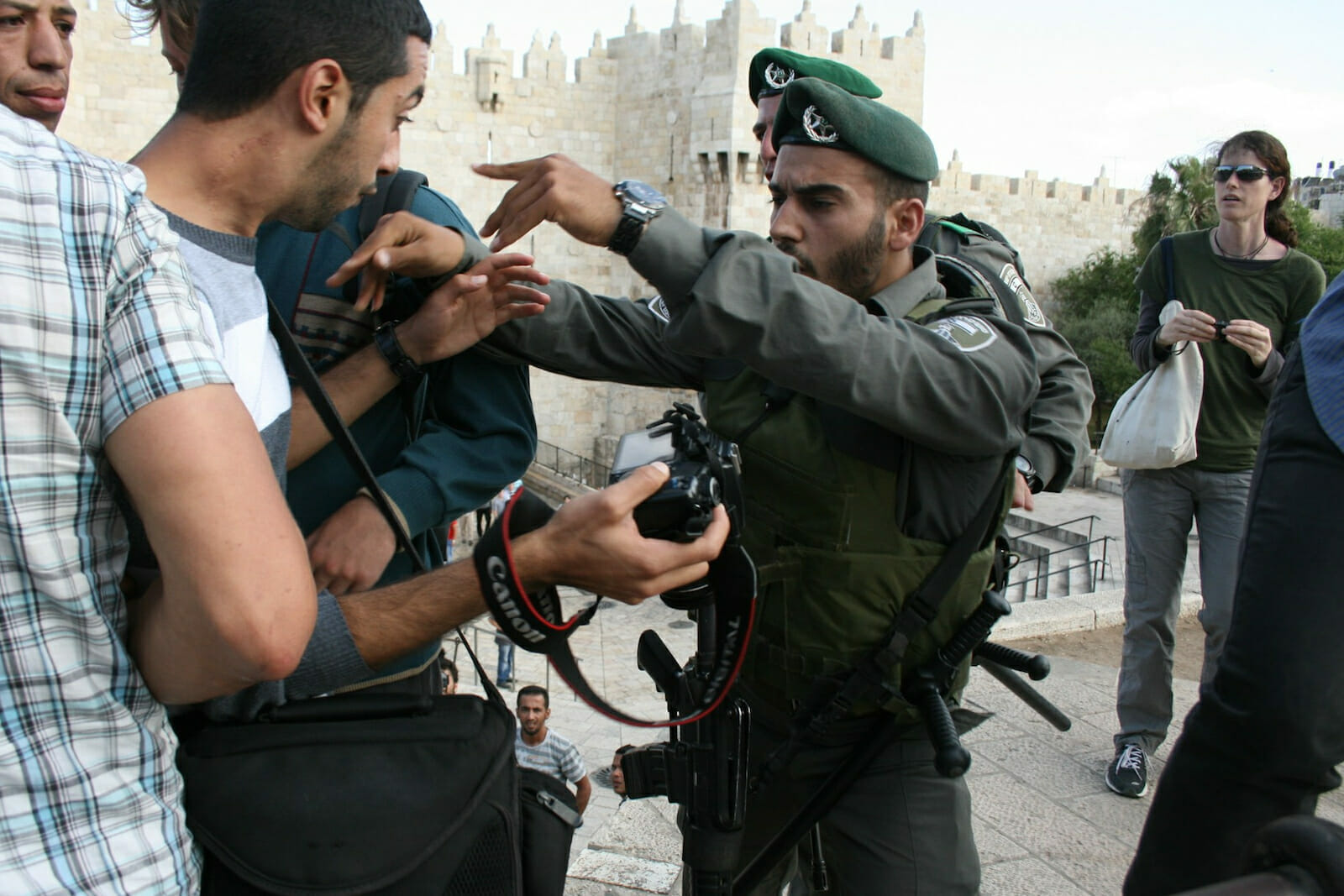
Israeli Policies Towards the Palestinians: Debunking the Hypocrisy of Western Narratives
“I’m scared that they’ll throw us out into the street—that they’ll kick out the whole neighbourhood.” In an interview with France 24, 70-year-old Aref Hammad has shared his fear of being evicted from the home that he moved into more than 50 years ago. He is one of many Palestinians who fled their homes for Sheikh Jarrah following the 1948 war. Years later, however, Israel occupied and reclaimed the land – a move not recognized by the international community.
Israel’s eviction of Palestinian communities in Sheikh Jarrah last June is just one of many events that symbolize their ongoing struggles against Israeli occupation. Israeli supporters argue that it was a lawful eviction of Palestinians living on someone else’s land. Yet, we all must realize that Israeli law itself is a fundamentally flawed system that enables and even fosters systematic discrimination against Palestinians.
Human Rights Watch, in its April report, “A Threshold Crossed,” accused Israel of “apartheid,” “discriminatory laws and policies” that “enable[s] settler and settler organizations to take possession of Palestinian homes.” Through forceful evictions, the Israeli government has been driving out Palestinians even further from Jerusalem, which both parties claim as their respective capitals.
Such a land dispute, however, is not the only cause of the current crisis. By “apartheid” policies, Human Rights Watch refers to Israel’s ethnic cleansing of Palestinians at the societal level, through practices such as depriving Palestinians of essential resources, limiting their freedom of movement, and enabling settler violence against Palestinian women and children. For instance, according to data published by Al Jazeera, Israelis control close to 90% of mountain aquifers in the West Bank, compared to only 11% for the Palestinians. Moreover, authorities regularly approve almost 100% of Israeli water-related projects, compared to only 56% for Palestinian projects. Clearly, controlling access to water resources has become a powerful tool to suppress and marginalize Palestinian communities, as Israel’s corrupt judicial system protects and upholds such practices.
Settler violence is another prominent example of Israeli law enabling the exploitation and abuse of Palestinians at the hands of Jewish extremists. Last April, several UN human rights experts warned that settler violence against Palestinians has been on the rise amidst an atmosphere of impunity: “We note that, in 2020, the United Nations Office for the Coordination of Humanitarian Affairs (OCHA) documented 771 incidents of settler violence causing injury to 133 Palestinians and damaging 9,646 trees and 184 vehicles mostly in the areas of Hebron, Jerusalem, Nablus, and Ramallah.”
According to the UN experts, settler violence is primarily aimed at taking over Palestinian land through intimidation and vandalism, with some attacks even targeting pregnant women and children. “We are deeply worried by the atmosphere of impunity in which these attacks are taking place,” the experts reported. “In many cases, the Israeli military has been present, or nearby, and has not taken sufficient steps to protect the Palestinians from this violence.”
Statistics support their claim: between 2005 and 2019, 91% of cases filed by Palestinians were closed by Israeli authorities without indictments. In short, systematic discrimination within Israel’s legal system has enabled settlers to commit violence against Palestinians without facing any substantial consequences, despite the fact that the Geneva Convention requires an occupying power to protect the population under occupation against any act of violence and/or threat of violence.
What we see here is not a two-sided “conflict.” It is state-sponsored ethnic cleansing and systematic discrimination against civilians. Nevertheless, Western media continues to distort the reality through deceptive rhetoric. Such manipulation is done by labeling the violence as a mere “conflict,” calling apartheid a “separation wall,” and alleging that Israeli attacks on Palestinians are meant to only counter Hamas. In the name of “objective” reporting, the media effectively dehumanizes the violence and veils institutional oppression and atrocities that have rendered one party vulnerable to another.
Even on social media, pro-Palestinian activists are often demonized as “anti-Semitic” – illustrating the tendency to link Judaism directly to the Israeli government as a whole and validate its policies in the name of religion.
Censoring one’s voice by downplaying his qualification is another prevalent phenomenon in social media. For instance, while social media inadvertently facilitates the oversimplification of a certain socio-political event/phenomenon, telling people that the issue is “too complicated to talk about” equates to invalidating their point of view to silence them. The word “complicated” is not just a generic expression of reality but also a subtle attempt to discourage people from learning and exploring the issue even further, thus rendering them uninformed.
Similarly, the rhetoric “you are not Israeli or Palestinian” is effectively used to bar someone from speaking up for the situation in Palestine. While such remarks assume that only Israelis and Palestinians are stakeholders in this issue, the reality is quite the opposite: foreign interference is largely responsible for escalating the problem. For instance, the United States is the biggest financial backer of Israel and has significant influence over Israeli policies. It has even been said that the current conflict would not have been initiated in the first place without the beguiling diplomacy of colonial British power.
Even individuals are stakeholders of the problem by purchasing services and products of enterprises funding Israeli settlements in the occupied territories. In today’s society, virtually no one can remain irrelevant or disconnected from the ongoing humanitarian crisis in Palestine, regardless of whether people choose to acknowledge so.
Ultimately, you must realize that by remaining silent, you are essentially choosing the side of the oppressor. By telling yourself that the issue is too complicated, you are seeking deliberate ignorance. And by alleging that you are irrelevant, you are also turning your back on your government’s complicity in this inhumanity. Without such a realization, we’ll remain a part of the problem and continue to submerge ourselves in the flood of manipulation and distortion of reality.
